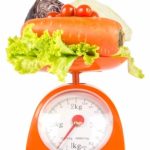News

In accordance with the idea that you shouldn’t eat dinner past 7 p.m. if you don’t want to gain weight, a new study suggests that night snacking can make you put on more fat than nibbling during the day. According to emerging research, when the body’s normal sleep-wake cycle is disrupted by requiring the metabolism …
Read More

Night eating syndrome (NES) is a complex emotional, physical and psychological condition that is characterized by disruptions in eating and sleeping habits. NES can often be linked to problems with depression or other mental health disorders, so it’s best to speak with a doctor before self-diagnosing or attempting to start a treatment program. Eat regular …
Read More

A controversial case in which a 9 year old Ohio boy was removed from his mother’s care due to his extreme obesity, has ended with the boy returning to live with his mother following a weight loss of approximately 50 lbs. The boy was apprehended and placed in foster care last Fall as it was …
Read More

Regulating stress eating could be as simple as wearing a new bra – one that has special sensors to monitor your moods, that is. Engineers at Microsoft Research have developed a “stress-busting” bra that sends feedback to a smartphone about a user’s mood and feelings. The device captures heart rate, respiration, skin conductance and movement. …
Read More

New research published in the journal Appetite suggests why some children may be more prone to obesity, and it has to do with a particular gene in the brain’s reward system. The study found that girls are more prone to have a variation in this gene, which can set them up for eating disorders if …
Read More

Gadgets that are designed to prevent overeating (like the vibrating fork), are popping up all over the place lately, and another one has hit the market that could simplify the process of consuming appropriate portion sizes. The ETE plate is designed to show eaters how to fill their plates with the right amounts of vegetables, …
Read More

The American Medical Association has agreed to support legislation that would require all public school children to receive instruction on obesity at school. The yearly classes would be mandatory for children in grades 1 through 12, and would provide education on the causes, prevention, and consequences of obesity. The policy was adopted on the last …
Read More

When it comes to developing healthy habits that last, new research suggests that paying attention to what we eat during the week is an important strategy. A study from Brian Wansick, a professor of consumer behavior at Cornell University and author of the book Slim By Design, found that people who want to lose weight …
Read More

Foods that are higher in calories can trigger the brain responses associated with eating – regardless of how good they taste, new research suggests. Researchers at Yale University found that there are essentially two separate brain circuits that are activated when people eat: one responds to flavor and taste, while the other kicks into gear …
Read More

A clinically obese woman in Massachusetts has been refused medical treatment by a doctor due to her weight. According to a report by the New York daily News, Ida Davidson who weighs over 200 pounds was recently told by her doctor that she would be unable to provide health care for her because of her …
Read More
 Eating Disorder Self Test. Take the EAT-26 self test to see if you might have eating disorder symptoms that might require professional evaluation. All answers are confidential.
Eating Disorder Self Test. Take the EAT-26 self test to see if you might have eating disorder symptoms that might require professional evaluation. All answers are confidential.
Find a Treatment Facility Near You
Click on a state below to find eating disorder treatment options that could be right for you.










 Eating Disorder Self Test. Take the EAT-26 self test to see if you might have eating disorder symptoms that might require professional evaluation. All answers are confidential.
Eating Disorder Self Test. Take the EAT-26 self test to see if you might have eating disorder symptoms that might require professional evaluation. All answers are confidential.